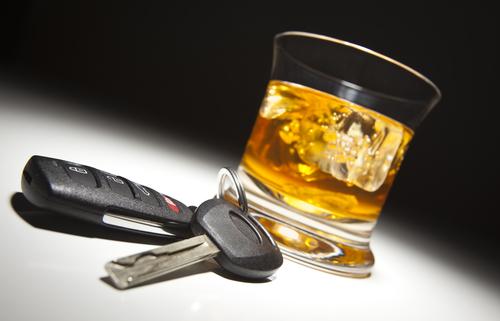Throwback Thursday, DUI Style
 State of Arizona ex rel. Hamilton v. City Court of Mesa, and Real Party in Interest Lopresti, 799 P.2d 855, 165 Ariz. 514 (1990) – How the State Gets it Wrong and What Happens When the Courts Believe Them
State of Arizona ex rel. Hamilton v. City Court of Mesa, and Real Party in Interest Lopresti, 799 P.2d 855, 165 Ariz. 514 (1990) – How the State Gets it Wrong and What Happens When the Courts Believe Them
Michelle L. Behan
In 1990, the Supreme Court of Arizona took up a case to determine if it was lawful for the State of Arizona to use field sobriety test results as proof a citizen had an alcohol concentration over the legal limit. A few years earlier, the Supreme Court had decided a case[1] called Blake, where they held it was not permissible for the State to use Horizontal Gaze Nystagmus test results as direct evidence of a driver’s alcohol concentration. In the Lopresti decision, the Court reaffirmed its prior holding, and then provided direct guidance limiting the testimony of a police officer regarding HGN test results:
In the absence of a chemical analysis, the use of HGN test results, as with observations from other field sobriety tests, is to be limited to showing a symptom or clue of impairment. … The officer may not testify regarding accuracy in estimating BAC from the test, nor may the officer estimate whether the BAC was above or below [the legal limit]. … HGN test results may be admitted only for the purpose of permitting the officer to testify that, based on his training experience, the results indicated possible neurological dysfunction, one cause of which could be alcohol ingestion.
State v. Mesa (Lopresti), 165 Ariz at 857, 859.
All too often, the State will attempt to have the officer testify to a percentage probability that the driver’s alcohol concentration is over the legal limit based on the HGN test results at an evidentiary hearing. The Lopresti decision, as written above, clearly prohibits such testimony. When the defense attorney objects, the State usually claims that the Lopresti decision involved a trial case, and not an evidentiary hearing[2]. However, what they fail to tell the court is that there is nothing in the Lopresti decision that says its holding is limited to trial cases.
The experienced trial lawyers at The Behan Law Group have seen the State try this many times. Not only does it completely misstate the authority of the case, but it is an attempt to circumvent the decision to provide the court with unreliable information. The Lopresti Court saw the writing on the wall:
[1] State v. Superior Court (Blake), 149 Ariz. 269, 718 P.2d 171 (1986). See also the next two installments of Throwback Thursday, DUI Style for an in-depth discussion of Blake, its holding and its application today.
[2] There are many legal distinctions between trials and evidentiary hearings. However, it is incorrect to limit the holding in a case like Lopresti to a trial situation, and allow the State to bypass the due process protections that are in place for every hearing
Finally, we are concerned with the accuracy of the HGN test in establishing BAC levels. We note, for example, that an Intoxilyzer with an 80% accuracy level[3] would not qualify for certification under DHS regulation. As we noted in Blake, the use of HGN test results to establish BAC over [the legal limit] where there is no chemical analysis would raise several potential due problems
Lopresti, supra, at 859.
In the quote above, the Lopresti Court is saying that an HGN officer, who only has to be 80% accurate to keep administering the HGN test, cannot provide reliable evidence of a driver’s alcohol concentration using HGN results. There are two primary reasons for this: first, at the time of the case, the officers did not have body-worn cameras[4], and the Lopresti Court noted the potential for the HGN test to be administered improperly without anyone there to provide independent verification that the test was done correctly. Second, the government’s own studies have documented cases where a person has 4 or 6 cues on the HGN test and has an alcohol concentration well under the legal limit, sometimes as low as .03
It takes a skilled, capable, and experienced DUI trial lawyer to stop misleading information from being admitted in court. The lawyers at The Behan Law Group have the scientific knowledge and the courtroom savvy to protect your rights, and win your case. Don’t let the State violate your due process guarantees! Call The Behan Law Group at 520-220-5047 for a free consultation, and let Miss DUI Arizona fight for you, too!
[4] The body worn camera footage obtained by The Behan Law Group provides nearly universal verification that the officers in Southern Arizona administer the HGN test wrong.




